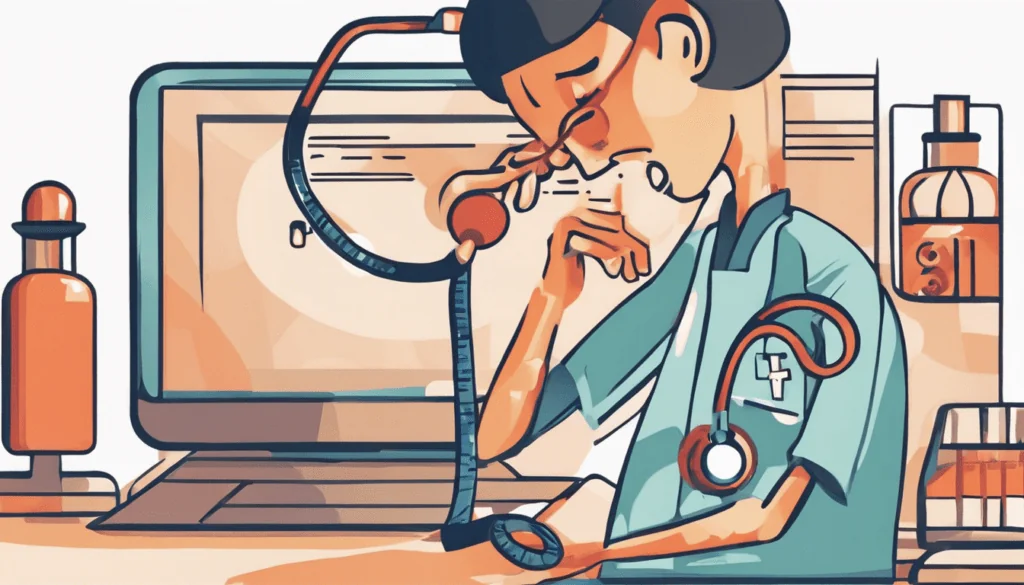What to Look for in a Health Insurance Policy: Expert Advice

Health Insurance Policy
Choosing the right insurance policy can feel like a daunting and intricate process, yet it is an essential step in protecting your financial well-being and guaranteeing access to high-quality healthcare services when they are most critical to you and your loved ones.
With a wide variety of plans available, each offering distinct benefits, coverage options, and levels of protection, making a well-informed decision is essential.
In this comprehensive guide, we provide in-depth expert advice on what to consider when evaluating medical insurance coverage to help you successfully navigate this intricate and often confusing landscape.
Understanding Your Health Insurance Needs

Before delving into the details of medical insurance coverage and policy options, it’s essential to take the time to thoroughly evaluate your healthcare needs. Take into account factors such as your current age, any past or existing medical history, the overall health history of your family, and your personal lifestyle choices.
If you are dealing with chronic health conditions or anticipate substantial medical expenses, choosing a plan with extensive coverage and lower out-of-pocket costs could be a prudent decision.
Types of Health Insurance Plans
Understanding the diverse types of health insurance plans available can significantly aid in selecting the option that best aligns with your specific needs, preferences, and overall healthcare requirements.
1. Health Maintenance Organization (HMO) Plans
HMO plans require you to select a primary care physician (PCP) who oversees your healthcare needs and manages referrals to specialists when necessary. These plans typically offer lower premiums and reduced out-of-pocket expenses, but they mandate that you remain within a predetermined network of approved providers to access covered services.
2. Preferred Provider Organization (PPO) Plans
PPO plans offer a significant level of flexibility, enabling you to visit any healthcare provider of your choice without requiring a referral, even when seeking care outside of your designated network.
Although the premiums and out-of-pocket expenses may be higher compared to other types of plans, PPO plans are an excellent option for individuals who value greater freedom and control when selecting their healthcare providers and services.
3. Exclusive Provider Organization (EPO) Plans
EPO plans to offer a blend of features from both HMOs and PPOs, providing a unique balance between the two. These plans require members to rely on a specific network of providers for all medical services except in emergencies. However, they do not mandate referrals when you need to visit a specialist, which can be a significant convenience.
Typically, EPO plans are more affordable compared to PPOs, making them an attractive option for budget-conscious individuals, though they do come with notable limitations in terms of flexibility.
4. Point of Service (POS) Plans
POS plans require you to select a primary care physician and obtain referrals for specialist visits, much like the structure of HMOs. However, similar to PPOs, these plans also allow you to visit out-of-network providers, though typically at a higher cost.
This combination of features offers a balanced approach, providing a practical compromise between cost savings and the flexibility to access a broader range of healthcare options.
Key Features to Consider
When assessing well-being insurance policies, it is essential to carefully consider a broad range of important factors and choices that can significantly impact your coverage and overall satisfaction:
1. Coverage Benefits
Carefully evaluate the safety benefits in detail to fully understand what is provided. Take time to explore and identify insurance policies that offer coverage for essential well-being benefits associated with:
- Hospitalization
- Emergency suppliers
- Prescription drugs
- Maternity and new little one care
- Mental well-being suppliers
- Preventive suppliers
Make sure that the protection extends to all suppliers and any necessary coverings you may require, while carefully reviewing the policy for any exclusions or specific limitations that could impact your coverage. Take the time to understand the details thoroughly to ensure there are no unexpected gaps.
2. Premiums and Out-of-Pocket Costs
Premiums are the recurring monthly payments you make to maintain your insurance coverage. These payments ensure that your policy remains active and ready to provide coverage when needed. On the other hand, out-of-pocket costs consist of deductibles, co-payments, and co-insurance, which are the expenses you pay directly when accessing healthcare services.
It is crucial to carefully evaluate and balance the ongoing premium costs with the potential out-of-pocket expenses you might face. This process allows you to discover a plan that aligns with both your financial budget and your personal healthcare needs, ensuring the best value and coverage for your situation.
3. Network of Providers
Check the network of suppliers affiliated with the coverage to ensure it meets your needs. Verify that your preferred medical professionals, including doctors, hospitals, and specialists, are part of the network.
If you have specific healthcare providers you rely on or wish to continue visiting, this is a crucial factor to take into account when reviewing your options.
4. Prescription Drug Coverage
If you rely on frequent medication, it is essential to evaluate the prescription drug safety offered by your protection plan. Take the time to carefully review the formulary, which serves as the detailed document listing covered medications, to ensure that all of your necessary prescriptions are included.
Additionally, closely examine the cost-sharing structure associated with your medication, which includes important details such as tiers, co-pays, and any other potential out-of-pocket expenses you might encounter.
5. Policy Flexibility
Evaluate the protection flexibility to determine whether it aligns with your evolving needs and preferences. Numerous plans offer options such as well-being monetary savings accounts (HSAs) or flexible spending accounts (FSAs), which come with valuable tax benefits.
These accounts can be instrumental in helping you manage healthcare expenses more effectively, offering a practical way to address both short-term and long-term medical costs.
6. Customer Service and Support
Exceptional buyer assistance and support can significantly enhance your overall experience with an insurance coverage provider. It’s essential to prioritize insurers that boast high customer satisfaction ratings and well-established support systems designed to guide you through claims processes, billing inquiries, and a variety of other concerns.
Additional Considerations

1. Preventive Care and Wellness Programs
Many insurance coverage policies offer comprehensive preventive care and wellness-focused programs designed to support your health and detect potential issues at an early stage. These services often include free annual health check-ups, necessary vaccinations, and routine screenings to maintain optimal well-being.
Participating in wellness programs can frequently lead to reduced premiums or provide additional benefits and rewards, encouraging proactive health management.
2. Coverage for Alternative Therapies
If you make use of a wide variety of treatments such as acupuncture, chiropractic care, or naturopathy, it’s important to verify whether these are included under your coverage. Many insurance policies do not cover these alternative healthcare services, and the extent of protection can differ significantly from one plan to another.
3. Dental and Vision Coverage
Certain medical insurance plans include dental and vision coverage as part of their comprehensive benefits. If these services are essential to your health and wellness, consider exploring policies that offer this coverage or provide optional add-ons to meet your dental and vision care requirements.
These additional features can ensure you have access to preventive care, routine checkups, and specialized treatments that contribute to maintaining your long-term health.
4. Global Coverage
For individuals who travel frequently and explore the world regularly, ensuring you have comprehensive global safety can be essential. It’s crucial to verify whether the coverage includes protection for unexpected medical expenses incurred while abroad, as well as to thoroughly understand the terms and conditions related to accessing international healthcare services.
5. Plan Renewal and Changes
Understand the key phrases associated with plan renewal and changes. Health insurance policies often undergo yearly updates, which can affect premiums, coverage options, and the network of providers available to you.
Staying informed about these modifications is crucial to avoid unexpected expenses, interruptions in your coverage, or potential gaps in your healthcare safety net.
Taking the time to review and understand these changes ensures you can make informed decisions about your plan and maintain continuous protection.
Expert Tips for Choosing the Right Health Insurance Policy
1. Compare Multiple Plans
Comparing a variety of plans side-by-side can significantly help you determine the most suitable option for your needs. Take advantage of online tools and resources to thoroughly evaluate aspects such as premiums, out-of-pocket expenses, coverage benefits, and network providers.
This detailed comparison can provide valuable insights, making it easier to select a plan that aligns with both your financial situation and healthcare priorities.
2. Read the Fine Print
Carefully explore and understand the benefits of any comprehensive well-being insurance policy. Take the time to thoroughly evaluate exclusions, limitations, and any specific clauses that might affect your overall safety and coverage. Gaining a clear understanding of the fine print can help you avoid unexpected challenges or surprises in the future.
3. Seek Professional Advice
Consider reaching out to a licensed insurance coverage protection agent or provider for expert advice. These professionals can offer you tailored solutions specifically designed to meet your unique needs.
They possess the expertise to guide you through the intricate details and complexities of various insurance plans, helping you make well-informed decisions that align with your circumstances.
4. Review Annually
Your healthcare needs and financial circumstances can evolve significantly over time, making it essential to evaluate your medical insurance coverage annually. By doing this, you can ensure that your plan continues to meet your current needs effectively, providing the most suitable protection.
This yearly review also allows you to identify any gaps or necessary adjustments, helping you stay prepared and well-covered as your situation changes.
Conclusion

Selecting the right medical insurance coverage is a critical decision that demands thorough evaluation of your healthcare needs, budget constraints, and personal preferences.
By gaining a clear understanding of the different types of plans available, thoroughly comparing key features, and taking into account additional factors such as coverage limits and provider networks, you can make an informed choice that ensures comprehensive protection and long-term peace of mind.
For more expert guidance and valuable insights on attracting more visitors to your website, be sure to explore The Insider’s Views.
FAQ: What to Look for in a Health Insurance Policy: Expert Advice
1. What parts ought I to take into account when deciding on medical insurance coverage?
When deciding on medical insurance coverage, it is important to carefully consider the following key factors and components:
- Coverage Benefits: Ensure the protection covers vital well-being suppliers akin to hospitalization, emergency care, pharmaceuticals, and preventive providers.
- Premiums and Out-of-Pocket Costs: Balance month-to-month premium funds with deductibles, co-payments and co-insurance.
- Network of Providers: Verify that your top medical doctors, hospitals, and specialists are included in the group.
- Prescription Drug Coverage: Check in case your frequent medications are covered and understand the cost-sharing requirements.
- Policy Flexibility: Look for decisions like HSAs or FSAs and the facility to alter safety as your desires change.
- Customer Service and Support: Choose a provider with excellent customer satisfaction and reliable help strategies.
2. What are the principal kinds of medical insurance policies on the market?
The main kinds of medical insurance policy are:
- Health Maintenance Organization (HMO): Requires a primary care physician and referrals for specialists, with decreased premiums and a restricted group.
- Preferred Provider Organization (PPO): Offers additional flexibility to see any provider without referrals, however with higher costs.
- Exclusive Provider Organization (EPO): Requires using group suppliers without having referrals, offering a hybrid flooring between HMO and PPO.
- Point of Service (POS): Combines HMO and PPO choices, requiring a primary care physician and offering the selection to see out-of-network suppliers at a higher worth.
3. Why is it important to understand my healthcare desires earlier than deciding on protection?
Understanding your healthcare desires helps you select protection that provides enough safety for your specific requirements. Factors like your age, medical historical past and life-style can have an effect on the form of safety you need, guaranteeing you may have ample security with out overpaying for pointless benefits.
4. How can I consider an utterly different medical insurance policy efficiently?
To consider completely different medical insurance plans:
- Use online comparability devices to take into account a variety of plans side-by-side.
- Look at premiums, out-of-pocket costs, safety benefits, and provider networks.
- Read the optimistic print to understand exclusions, limitations, and specific protection particulars.
- Consider searching for advice from a licensed insurance coverage protection agent for personalized options.
5. What should I discover about prescription drug safety in medical insurance coverage protection?
When reviewing prescription drug safety, check the protection’s formulary (document of lined medication) to ensure your prescriptions are included. Understand the cost-sharing building, along with tiers, co-pays, and any annual limits or restrictions on specific medication.
6. Are preventive care and wellness purposes important to medical insurance coverage protection?
Yes, preventive care and wellness purposes are important, as they aid you keep your well-being and catch potential factors early. Many insurance policies present free annual check-ups, vaccinations, and screenings. Participating in wellness purposes can usually cut back your premiums or present totally different incentives.
7. How does protection flexibility affect my medical insurance coverage decision?
Policy flexibility is important as a result of it permits you to adapt your safety to changing desires. Flexible decisions like well-being medical savings accounts (HSAs) or versatile spending accounts (FSAs) have current tax advantages and assist deal with healthcare payments. Ensure the protection permits for adjustments without important penalties.
8. What additional benefits would I presumably look for in medical insurance coverage protection?
Additional benefits to look for embrace:
- Dental and Vision Coverage: Some plans embrace or provide add-ons for these suppliers.
- Alternative Therapies: protection for suppliers like acupuncture, chiropractic care, or naturopathy.
- Global Coverage: Essential for frequent vacationers, providing safety for medical payments abroad.
- Preventive Care and Wellness Programs: Encouraging proactive well-being administration.
9. Why is it important to review my medical insurance coverage protection yearly?
Reviewing your medical insurance coverage protection yearly ensures that it continues to meet your healthcare desires and financial state of affairs. Healthcare desires and insurance coverage protection phrases can change, so frequent critiques aid you in being educated about any adjustments needed to keep enough safety.
10. Where can I uncover extra-skilled suggestions on medical insurance coverage and enhance web page guests?
For extra-skilled suggestions on medical insurance coverage and options to improve web page guests, go to The Insider’s Views.
National General Insurance: Comprehensive Coverage for Auto, Home, and More
Building Insurance: Everything You Need to Know
Top 5 Small Business Insurance Quotes in 2025: Complete Guide to Protecting Your Business



